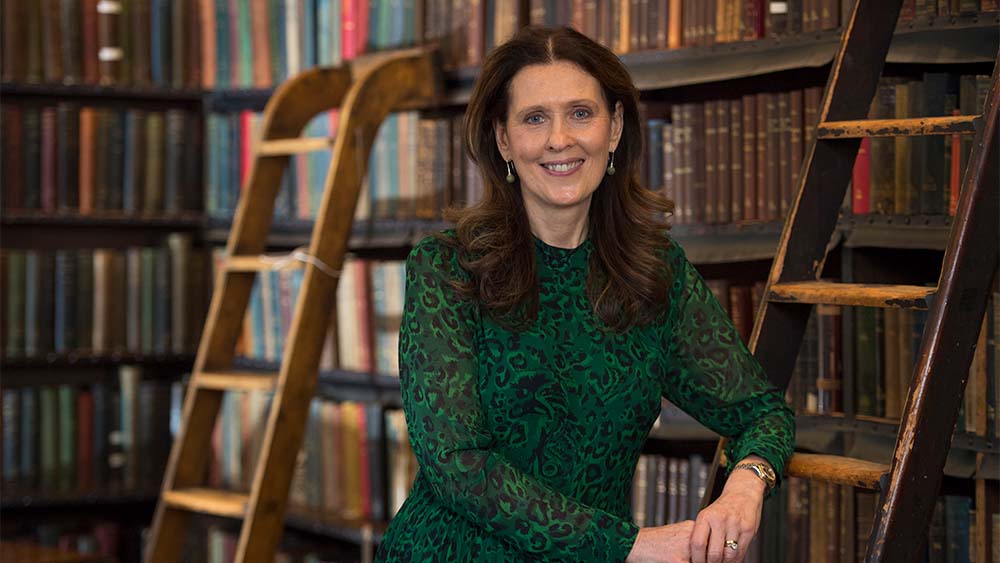October 14, 2021, by School of Medicine
50 at 50: Nottingham, a centre of excellence for stroke rehabilitation research
It is almost 38 years since I first stepped inside Queen’s Medical Centre, nervous and excited about my impending interview for a job covering the medical wards as a senior occupational therapist. What incredibly good fortune to be appointed to the job. My life and career have never looked back since that day!
Under the leadership of Professors Tony Mitchell, Shah Ebrahim, Nadina Lincoln and Dave Barer, Nottingham was at the forefront of a new era in stroke care. I was incredibly privileged to be working alongside such great minds and passionate people. Playing a key part in setting up the newly established stroke unit ward was a fabulous experience, especially at a time when the benefits of stroke unit care were not yet known. It made such perfect sense that specialised and focussed care had to have positive outcomes for patients but to provide the best care, you first need robust evidence.
Research was a core component of the newly established stroke unit, and it didn’t take long to convince me that if I was serious about delivering the best care to my patients, I had to embark on some pretty serious research training myself. My MPhil and PhD followed, alongside some incredibly bright and passionate fellow stroke therapists. The development of academic careers in the allied health professions was relatively unheard of at this time, with no role models to follow or to supervise our development.
The impact the clinical psychologist Professor Nadina Lincoln had on training and developing a cohort of internationally successful and influential rehabilitation therapists cannot be overstated. She had the patience of a saint and the quiet leadership skills that ensured everyone who worked for her excelled. Nadina’s legacy is that she taught us all how to harness our passion for stroke rehabilitation research and to be robust in our science.
The development of the Nottingham stroke research unit was at the time incredibly visionary and has led to some of the key cornerstone evidence that still shapes stroke care today. The benefits of stroke unit care, community rehabilitation, occupational therapy, the implementation of Early Supported Discharge are just some of the output led by Nottingham that have influenced stroke care in the UK and globally. Indeed, Nottingham is unique in that its reputation for research excellence extends across the whole stroke pathway with links to acute stroke research, under the leadership of Professor Philip Bath.
Nottingham has also been instrumental in shaping guidelines for rehabilitation care in stroke, both nationally and internationally. Much of our own research output influencing the content of the documents. Under our leadership we directed the rehabilitation theme of the newly established NIHR Stroke Research Network (2005-2015), moving small single centre studies to large multicentre trials. Nottingham is now currently co-leading the development of an International Stroke Rehabilitation and Recovery Alliance (ISRRA) and leading the development of core criteria for globally relevant Centres of Clinical Excellence.
Nottingham’s great reputation, influence and success in stroke rehabilitation research continues to thrive, producing some incredible academic rehabilitation therapists and scientists, who are shaping the stroke care of the future. Throughout my career at Nottingham, I have met the most amazing people who have helped shape the researcher and person I have become. I have been hugely privileged to have been on this incredible stroke journey and feel grateful for all the exciting opportunities and friendships that Nottingham afforded me.
By Professor Marion Walker, Emeritus Professor in Stroke Rehabilitation / Emeritus NIHR Senior Investigator
No comments yet, fill out a comment to be the first


Leave a Reply